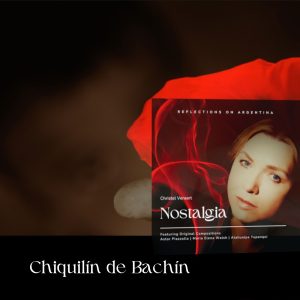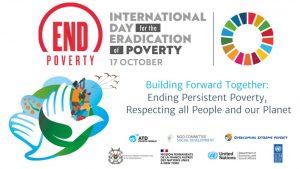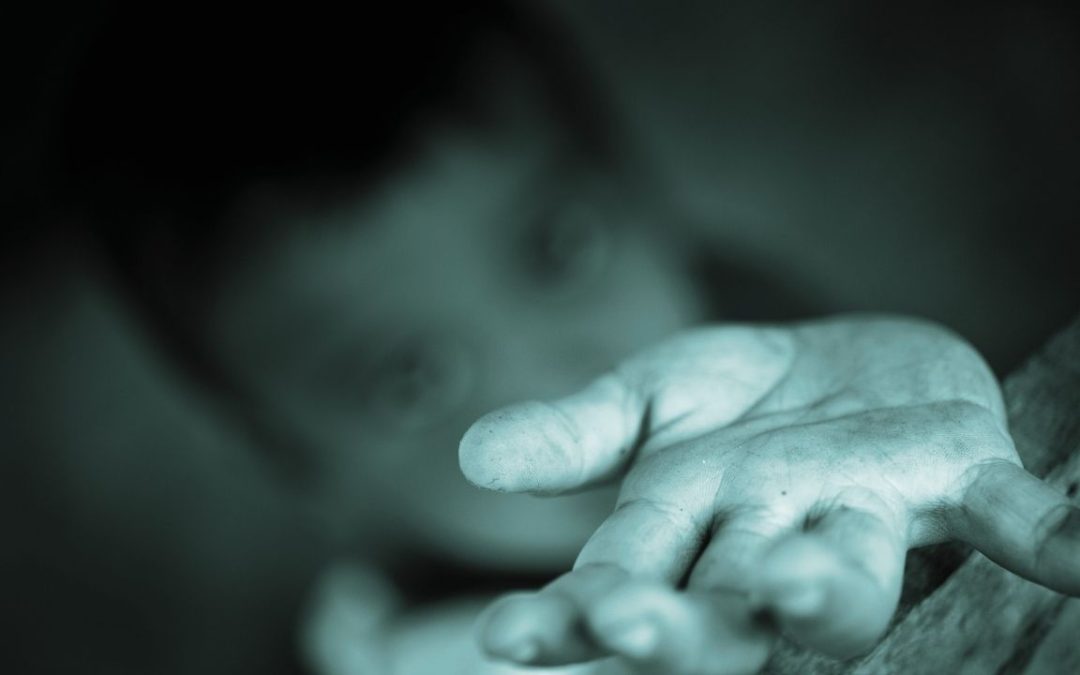 Today, I’m excited to release my rendition of “Chiquilín de Bachín,” the poignant song, composed by Argentine tango giant Astor Piazzolla and poet Horacio Ferrer. The song is part of my upcoming album “Nostalgia”, to be released soon. My release represents a fusion of musical homage and my personal journey through Buenos Aires and my travels across South America, documented in my debut book, “Santa Fe & Esmeralda.” Below you will find a sneak peek from my upcoming book.
Today, I’m excited to release my rendition of “Chiquilín de Bachín,” the poignant song, composed by Argentine tango giant Astor Piazzolla and poet Horacio Ferrer. The song is part of my upcoming album “Nostalgia”, to be released soon. My release represents a fusion of musical homage and my personal journey through Buenos Aires and my travels across South America, documented in my debut book, “Santa Fe & Esmeralda.” Below you will find a sneak peek from my upcoming book.
On this World Poverty Day, “Chiquilín de Bachín” serves as a beacon, casting light upon the plight of vulnerable children. It is a poignant reminder that poverty is not a remote issue; it is a harsh and undeniable reality endured by countless worldwide.
Chiquilín de Bachín
Excerpt from “Santa Fe & Esmeralda”
… Chiquilín de Bachín tells the story of a little boy (Chiquilín) known to Piazzolla and poet Ferrer in real life. It is based on the experiences of an eleven-year-old named Pablo, who spent his nights alone on the streets of Buenos Aires, selling flowers to patrons of the theater district and its restaurants, including one named Bachín. The waltz-like melody of Chiquilín de Bachín adds to the song’s drama, in my opinion. Simple and sorrowful phrases end in a plaintive, yearning cadence that depicts childlike tenderness, while dark and chromatic harmonies evoke the performer’s lament for the young child’s loss of innocence. The song expresses a sense of universal guilt over the hopeless social injustice suffered by children in this case.
While living in Buenos Aires, I was surrounded by hunger and homelessness. Begging children could be found on every street corner. The common advice, given by those more privileged, was not to give these street children any money, as it would only end up in the pockets of their parents, who, they said, would spend it on drugs and alcohol to drown their own misery. Whether this was true or not, I will never know. When I visited Peru on my way back to Europe, I realized just how accustomed I had become to witnessing poverty…
Chiquilín de Bachín
Spanish Lyrics by Horacio FerrerPor las noches, cara sucia de angelito con bluyín
Vende rosas por las mesas del boliche de Bachín
Si la luna brilla sobre la parrilla
Come luna y pan de hollín
Cada día en su tristeza que no quiere amanecer
Lo madruga un seis de enero con la estrella del revés
Y tres reyes gatos roban sus zapatos
Uno izquierdo y el otro también
Chiquilín, Dame un ramo de voz
Así salgo a vender mis vergüenzas en flor
Baleáme con tres rosas que duelan a cuenta
Del hambre que no te entendí, Chiquilín
Cuando el sol pone a los pibes delantales de aprender
él aprende cuánto cero le quedaba por saber
Y a su madre mira yira que te yira,
Pero no la quiere ver
Cada día, en la basura con un pan y un tallarín
Se fabrica un barrilete para irse y sigue aquí
Es un hombre extraño,
Niño de mil años
Que por dentro le enreda el piolín
Chiquilín, Dame un ramo de voz
Así salgo a vender mis vergüenzas en flor
Baleáme con tres rosas que duelan a cuenta
Del hambre que no te entendí, Chiquilín
Chiquilín de Bachín
English Translation by Christel VeraartAt night, a cherubic child with a dirt-kissed face,
Clad in blue jeans, peddles roses at the tables of Bachin’s diner.
When the moon’s glow graces the grill’s surface,
He feasts on its radiance alongside soot-covered bread.
Each somber day, he awakens reluctantly, dreading the dawn.
On the day of Epiphany, when the star hangs askew,
Three feline monarchs pilfer his footwear
— Both left and right.
Dear child, bestow upon me a bouquet woven from your voice,
So I may trade my shame in full bloom.
Shoot me thrice with roses that sting,
Serving as a reminder of a hunger I could not fathom.
When the sun gleams on the scholar’s aprons,
He struggles to understand the countless zeros beyond his reach.
His gaze falls upon his mother, a nomad in her own right,
But he averts his eyes, unwilling to witness her plight.
Amidst the refuse, with only bread and noodles at hand,
he crafts a makeshift kite, yearning for escape, But remains tethered to his current life.
He’s an enigmatic figure, a child of a thousand years,
Entangled by an internal string that refuses to let go.
Dear child, bestow upon me a bouquet woven from your voice,
So I may trade my shame in full bloom.
Shoot me thrice with roses that sting,
Serving as a reminder of a hunger I could not fathom.
World Poverty Day
 World Poverty Day, officially recognized as the International Day for the Eradication of Poverty, is marked every year on the 17th of October. This significant occasion serves as a global platform to promote awareness and mobilize efforts to eradicate poverty in all its manifestations across the world.
World Poverty Day, officially recognized as the International Day for the Eradication of Poverty, is marked every year on the 17th of October. This significant occasion serves as a global platform to promote awareness and mobilize efforts to eradicate poverty in all its manifestations across the world.
The inception of World Poverty Day dates back to October 17, 1987, when it was initially observed as the World Day for Combating Extreme Poverty. After five years, the United Nations (UN) General Assembly made a momentous declaration, recognizing poverty as a fundamental infringement of human rights. This declaration underscored the imperative to actively uphold the rights of impoverished individuals and systematically reduce poverty rates on a global scale.
What is a Food Bank?
A food bank serves as a sizable warehouse tasked with the receipt, sorting, storage, and distribution of both perishable and non-perishable food items. These provisions are subsequently allocated to various organizations, commonly referred to as agencies, which then carry out the distribution to individuals in need. While some food banks directly dispense food to people, others exclusively work through their network of agency partners. These agencies encompass a wide range of entities, such as food pantries, soup kitchens, homeless shelters, and after-school programs. They play a vital role in supplying nourishment directly to families facing hardships. If you require assistance or know someone in need, you can explore our food bank directory to locate one in your vicinity. You might be pleasantly surprised to discover one right in your neighborhood. Frequently, churches and local community centers operate food pantries as well.
St Mary’s Food Bank
Phoenix, AZ, is now closer to what I consider home, and it was here, in 1967, that a desperate young mother inspired soup kitchen volunteer John van Hengel to establish the world’s very first food bank, St. Mary’s Food Bank. During one fateful encounter, a young mother confided in him that she relied on soup kitchens and scavenging from grocery store dumpsters to provide sustenance for her children. This heart-wrenching revelation ignited a profound desire within Van Hengel to aid families suffering from hunger. Thus, the concept of a ‘Food Bank’ was born—an institution where individuals and businesses with surplus food could ‘deposit’ their offerings, and those in need could ‘withdraw’ nourishment. Read More
The Arizona Food Bank Network
The Arizona Food Bank Network helps food banks by:
- Coordinating large donations.
- Purchasing large quantities of food at bulk discount and distributing to the food banks.
- Transporting food directly to the food banks, to ensure donated food from fields and producers gets to all parts of the state.
- Providing education and networking to help them do even more good. Read More

